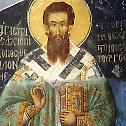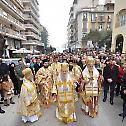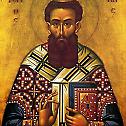Calendar
Sunday of the Blind Man
4. June 2016 - 16:33 Who shall declare Thy might, O Christ? And who shall number the multitude of Thy wonders? For as Thou wast doubly seen in Thy goodness on earth, so didst Thou doubly grant healing to the sick; for not only didst Thou heal the bodily eyes of the man born blind from the womb, but the eyes of his soul also. Wherefore, he confessed that Thou art a hidden God, granting all the Great Mercy.
Who shall declare Thy might, O Christ? And who shall number the multitude of Thy wonders? For as Thou wast doubly seen in Thy goodness on earth, so didst Thou doubly grant healing to the sick; for not only didst Thou heal the bodily eyes of the man born blind from the womb, but the eyes of his soul also. Wherefore, he confessed that Thou art a hidden God, granting all the Great Mercy.
--Doxasticon of the Feast, Tone 8
On this day, the sixth Sunday of Pascha, we celebrate the miracle wrought by our Lord and God and Savior Jesus Christ upon the man who was blind from his birth.
Saint Basil the Bishop of Ostrog
11. May 2016 - 15:39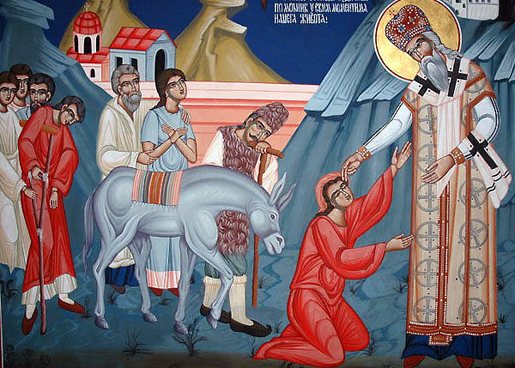 Saint Basil, Bishop of Zakholmsk, was born of pious parents in the sixteenth century in the Popov district of Herzegovina. At the age of maturity he left his parental home and settled in the Trebinsk monastery in honor of the Dormition of the Most Holy Theotokos, and became a monk.
Saint Basil, Bishop of Zakholmsk, was born of pious parents in the sixteenth century in the Popov district of Herzegovina. At the age of maturity he left his parental home and settled in the Trebinsk monastery in honor of the Dormition of the Most Holy Theotokos, and became a monk.
For his virtuous life the saint was elevated to be Bishop of Zakholm and Skenderia. He occupied the bishop’s cathedra in the second half of the sixteenth century, a successor to Bishop Paul and predecessor of Bishop Nicodemus. St Basil was a good pastor of the flock of Christ, and the Lord strengthened his discourse with various miracles. For the sanctifying of soul with the wisdom of holy ascetic fathers, the saint journeyed to Athos. St Basil died peacefully and was buried in the city of Ostrog in Chernogoria on the border with Herzegovina.
Lazarus Saturday
22. April 2016 - 21:44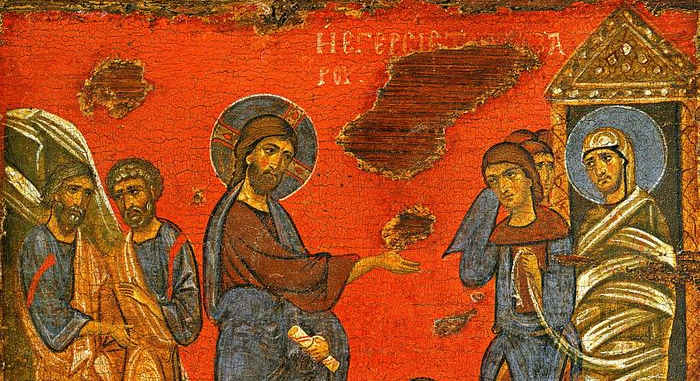 The Beginning of the Cross: Saturday of Lazarus
The Beginning of the Cross: Saturday of Lazarus
"Having fulfilled Forty Days... we ask to see the Holy Week of Thy Passion." With these words sung at Vespers of Friday, Lent comes to its end and we enter into the annual commemoration of Christ's suffering, death and Resurrection. It begins on the Saturday of Lazarus. The double feast of Lazarus' resurrection and the Entrance of the Lord to Jerusalem (Palm Sunday) is described in liturgical texts as the "beginning of the Cross" and is to be understood therefore, within the context of the Holy Week. The common Troparion of these days explicitly affirms that by raising Lazarus from the dead, Christ confirmed the truth of general resurrection. It is highly significant that we are led into the darkness of the Cross by one of the twelve major feasts of the Church. Light and joy shine not only at the end of Holy Week but also at its beginning; they illumine darkness itself, reveal its ultimate meaning.
The Sunday of St Gregory Palamas
27. March 2016 - 13:23In the Name of the Father and of the Son and of the Holy Spirit.
Why do we fast? Why do we make sacrifices? Why do we stand at long services? Why do we pray? To those of us who are beginning to doubt and waver after only two weeks of the Fast, the Church brings us an answer today. This answer is in the person of St Gregory Palamas, the fourteenth-century Archbishop of Salonica in Greece to whom this Sunday is dedicated.
Sunday of Orthodoxy
19. March 2016 - 21:51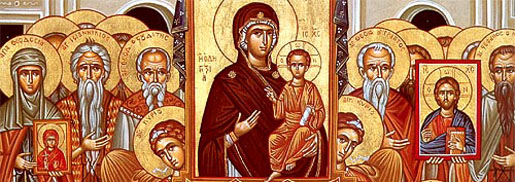 Rejoicing today in the triumph of Orthodoxy on this first Sunday of Lent, we joyfully commemorate three events: one event belonging to the past; one event to the present; and one event which still belongs to the future.
Rejoicing today in the triumph of Orthodoxy on this first Sunday of Lent, we joyfully commemorate three events: one event belonging to the past; one event to the present; and one event which still belongs to the future.
In the name of the Father, and of the Son, and of the Holy Spirit. Amen.
Rejoicing today in the triumph of Orthodoxy on this first Sunday of Lent, we joyfully commemorate three events: one event belonging to the past; one event to the present; and one event which still belongs to the future.
Sunday of the Publican and the Pharisee
20. February 2016 - 23:31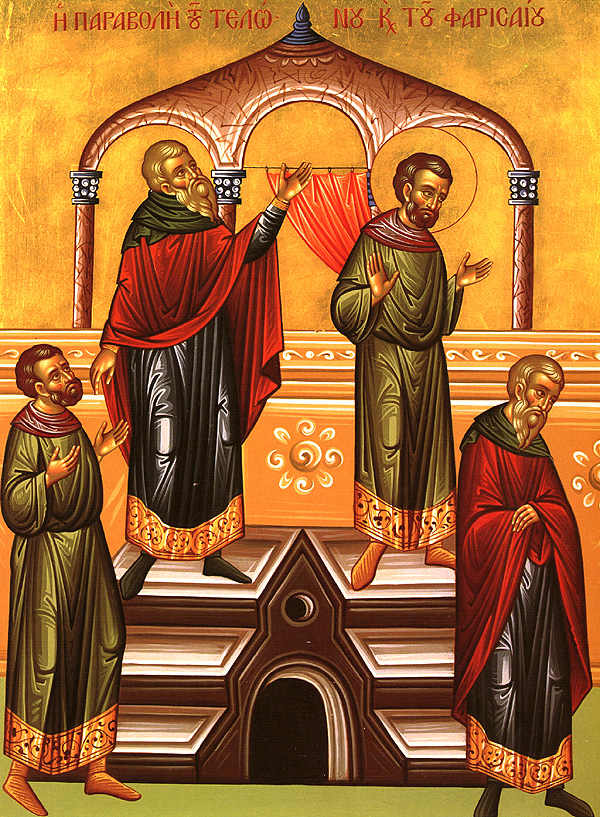 The Sunday after the Sunday of Zacchaeus is devoted to the Publican and the Pharisee. At Vespers the night before, the TRIODION (the liturgical book used in the services of Great Lent) begins.
The Sunday after the Sunday of Zacchaeus is devoted to the Publican and the Pharisee. At Vespers the night before, the TRIODION (the liturgical book used in the services of Great Lent) begins.
Two men went to the Temple to pray. One was a Pharisee who scrupulously observed the requirements of religion: he prayed, fasted, and contributed money to the Temple. These are very good things, and should be imitated by anyone who loves God. We who may not fulfill these requirements as well as the Pharisee did should not feel entitled to criticize him for being faithful. His sin was in looking down on the Publican and feeling justified because of his external religious observances.

